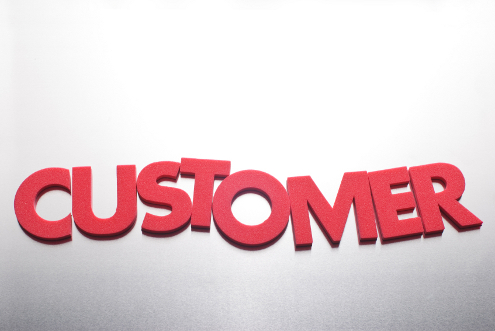
“The customer is always right.” Cliché, right? But put that image in your head of a ranting shopper in the product returns line on pause.
We often blog about the selling power of customers’ words, but many brands find even more value in the customer intelligence this feedback can offer. These stories from our clients illustrate how companies that actively pull insights from feedback quickly find that the customer is always right about…
…what products to sell. High sales with very low return rates showed an inexpensive ice cream maker to be a popular favorite among customers for QVC UK. But reviews revealed that the poorly made product was damaging customers’ confidence in ordering from the retailer, and buyers weren’t returning the product because it was so inexpensive. QVC UK stopped carrying the ice cream maker, saving their shoppers from future dissatisfaction.
Customer feedback is also powerful intelligence in negotiations between retailers and manufacturers. “There is nothing more powerful than going back to supplier with a fistful of bad reviews and saying, ‘We would like our money back and our customers agree with us,’” says Steve Fuller, Senior Vice President and CMO of L.L.Bean.
…what products other shoppers should buy. Customer feedback doesn’t just help shoppers buy – it sets realistic product expectations while helping shoppers find the right products for their specific needs. This increases customer satisfaction and reduces return rates. Customer Q&A reduced returns 23% in one case. PETCO found that products with reviews have a 20.4% lower return rate than those without reviews.
…what to say in product copy. After analyzing customer Q&A, UK cycling retailer Evans Cycles noticed that bike weight is an important factor for shoppers, but wasn’t available on their site. They now weigh all bikes before listing, and include this information in product descriptions.
L.L.Bean estimates that 75% of their negative reviews are the result of inaccurate product descriptions or marketing copy. Customer feedback helps companies catch these simple fixes, which can have a big impact. Samsung, for example, sells a refrigerator that must be plugged in for 6 hours before the ice machine works. Investigating the fridge’s high return rates, Samsung noticed through reviews that many customers thought the machine was broken. The product manager filmed a short video explaining the ice machine feature and distributed it throughout stores. Return rates decreased.
…what to say in advertising. L.L.Bean’s top performing non-sale email had a customer-generated headline: “I am in love with this doormat. Is it really wrong to love a doormat?” USAA also saw a 32x increase in acquisition for banner ad with review content, compared to ads without reviews. And Rubbermaid saw a 10% lift in coupon redemption rate when they included reviews in a print ad.
…what products to improve, and how. Land of Nod thought their customers loved their art clips – the $5 product had excellent sales rates. After launching reviews, they were surprised that the clips had such low ratings. Customer feedback revealed that the clips fell off the wall when customers tried to hang their work from them. Land of Nod redesigned the product, responded to negative reviewers to let them know their feedback had led to a change, and even sent these customers replacement products for free – turning a negative experience into a delightful one.
Dell’s product teams evaluate every product based on customer ratings and reviews. If any product’s rating drops below 3.5 stars, the product team has a set number of weeks to improve the rating before Dell kills the product. Rather than guessing what to improve about the product, the teams use insights from social media and customer reviews – specific suggestions like “more USB ports” or “louder max volume” based on trends found in customer feedback.
Stop guessing. Listen to your customers, gather insights from their feedback, and use these insights to improve your offering. When it comes to deciding what customers want…. well, you know the cliché.
Note: QVC UK, L.L.Bean, PETCO, Evans Cycles, Samsung, USAA, Rubbermaid, Land of Nod, and Dell are Bazaarvoice clients.
Read more: How To Stop Negotiating